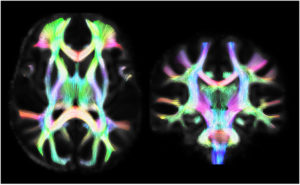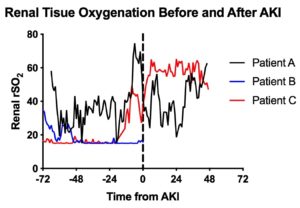The University of Wisconsin Neonatal & Perinatal Medicine Fellowship Program offers exceptional scholarly research experience that will enrich a fellow’s education and enhance their career development. Our goal is to provide a robust learning environment to help train future leaders in our field. We provide high quality research education for our Neonatal-Perinatal Medicine fellows with ample protected time to allow fellows to take advantage of valuable learning opportunities, and thoroughly invest in project development and execution, reading, writing, and reflection. Every fellow will gain basic, translational, and/or clinical research tools in order to have meaningful research experiences during their training which will set them up for success if they choose to pursue an academic career in research. Mentors with the Division of Neonatology and the Department of Pediatrics encourage and support fellows on their chosen research pathway and help to assemble a customized faculty Scholarship Oversight Committee (SOC).
Research within the Division of Neonatology spans a wide array of topics, and research modalities from more traditional bench research, to translational and clinical projects, as well as quality improvement, community and global health, and more.
Examples of current research projects include studies on the development and implementation of point of care ultrasound (POCUS), hypoxic-ischemic encephalopathy, neurocognitive development, newborn screening for thyroid disease, development of adrenal insufficiency, and fetal and neonatal iron nutrition and erythropoiesis. Our faculty also partner with other faculty in the Department of Pediatrics and at the Waisman Center to conduct research on topics from pulmonary hypertension to brain imaging and autism spectrum disorders. Ongoing projects in epidemiology use an extensive regional and statewide perinatal database to include all phases of perinatal health care, including neonatal follow-up. In addition to this, we have several faculty who focus on medical student and resident education, simulation, cardiovascular screening, palliative care, global health, health care disparities, as well as robust quality improvement projects.
Doug Dean III, PhD

Dr. Dean and the Developing Brain Imaging Lab are interested in advancing knowledge about early brain and child development. The first years of life are accompanied by rapid neurodevelopmental changes to the brain, while a multitude of complex interacting factors can have lasting effects on these neurodevelopmental trajectories. At the heart of our research is the advancement and application of quantitative magnetic resonance imaging (MRI) techniques, including relaxometry and diffusion MRI, to probe structural and microstructural features of the brain (e.g. myelination). Research projects focus on aspects of image and statistical analysis, including examining MRI measures of brain development, assessing associations with genetic and environmental factors, and combining neuroimaging data with measures of child behavior. Projects utilize several computer programming and statistical analysis approaches (e.g. Python, R, bash scripting), as well as advanced neuroimaging software suites (FSL, MRTrix, DIPY) providing opportunities to learn and use these techniques. Fellows can participate by utilizing available neuroimaging data and perform statistical analyses to investigate research questions related to neurodevelopmental processes. Fellows would learn and use several computer programming, statistical and image analysis techniques, including Python and R, have opportunities to submit findings at local, national, and international conferences, prepare manuscripts for publication, and gain experience with extramural grant applications.
Matthew Harer, MD

The Harer Research Group is conducting translational research on kidney function in neonates who require hospitalization in the neonatal intensive care unit (NICU). Our long-term research goal is to more effectively diagnose acute kidney injury (AKI) in the NICU, allowing early interventions to prevent and treat AKI, ultimately leading to decreased rates of chronic kidney disease (CKD) in childhood and adulthood. Currently we are working on ways to improve the diagnosis of AKI through two non-invasive measures: 1) near infrared spectroscopy (NIRS), a tool used to obtain continuous non-invasive measurements of kidney tissue oxygenation and 2) urinary metabolomic biomarkers. Fellows would be involved in study design, patient recruitment and consent, clinical study procedures (urine collection, sensor placement, POCUS), data collection and analysis, abstract writing, and manuscript preparation.
Beyond the Department of Pediatrics there is an expansive, and well supported university system that fellows are encouraged take advantage of. Our Maternal Fetal Medicine group has many faculty researchers studying preecplampsia, hypertension, obesity in pregnancy, fetal imaging, and health disparities, and the Department of Medical History and Bioethics provides fellows with an opportunity to explore clinical medical ethics as an area of focus.